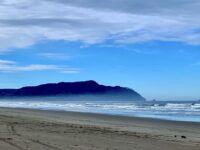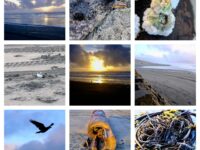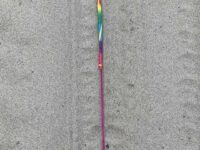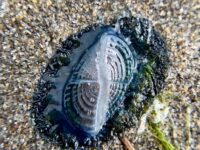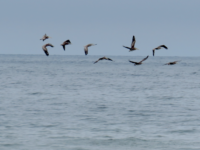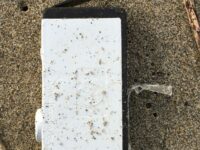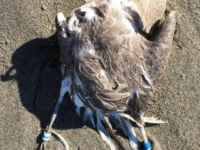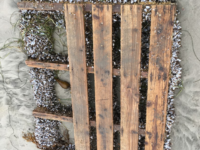Mile 327 Report
Clatsop Plains
January 13, 2021
Today was a welcome respite from the recent heavy rain, high winds, and stormy weather that accompanied the King tides of Jan.
Report Details
Today was a welcome respite from the recent heavy rain, high winds, and stormy weather that accompanied the King tides of Jan. 11th-13th. This afternoon's walk had mild weather, little wind, and cloudy skies. With an outgoing tide, a large stretch of beach was covered in sea foam. The Del Rey beach access road experienced significant sand erosion from the sides of the road where the pavement meets the beach, and loads of woody debris (logs, tree stumps, branches) are now strewn along the road, making access not advisable. A large gate and sign block current vehicular access today. The King tides left an impressive array of debris, both natural and human-caused, along the highest wrack line that I have seen (almost at the very base of the dunes). Along with typical plastic debris (shotgun shells, lighters, soda bottles, bottle caps, single-use plastics from food packaging), I found some unusual items including a rice cooker spoon and a printer ink catridge. Two dead birds washed up on the beach: a juvenile red phalarope and an ancient murrelet. Bird identifications confirmed by iNaturalist.
Conditions
Temperature: 50 F. Cloud Cover: Cloudy. Tide Level: 3.8 feet.
Human Activities
Number of people: 13. Number of dogs: 2. Walking or running: 1. Playing in sand: 9. Sitting: 3. Other Activities: Two individuals riding small motorcycles along the wet sand.. Two cars cruising close to the outgoing tide. One car stopped to pick up a crab float/buoy and take it off the beach.
Vehicles
Notable Wildlife
3 surf scoters, 2 western x glaucous winged hybrid gulls
Beached Birds
Total dead birds: 2. Juvenile red phalarope- 1 Ancient murrelet- 1
Driftline Content
Wood pieces, Land-based debris (picnics, etc.), Marine debris (plastic, styrofoam, etc. washing in from the sea), Styrofoam. Large concentration of beach grasses, sea foam, plastic debris, wood pieces, logs, and microplastics.
Natural Changes
Newly exposed roots/trees falling, Erosion of vegetated foredune, Evidence of wave overtopping. High king tides have resulted in newly exposed roots of beach grasses and a steep change in the contour of the edge of the dunes resulting in a sharp 5ft drop off where the beach meets the dunes. Evidence of wave overtopping along Del Rey beach road and nearby dunes.
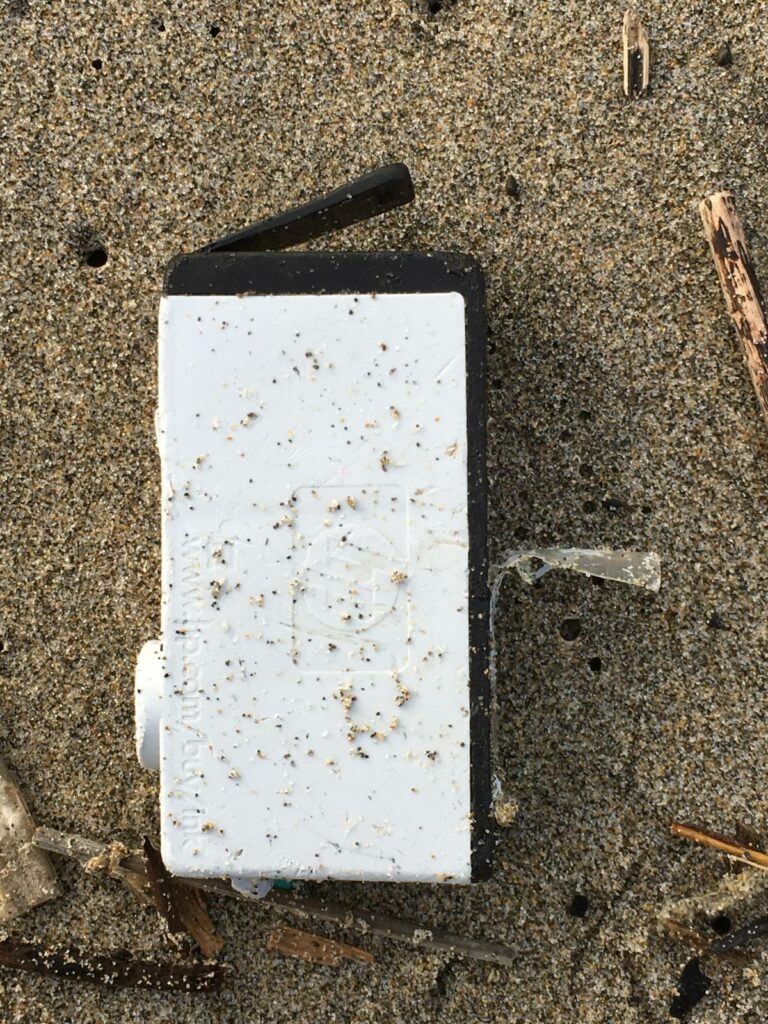
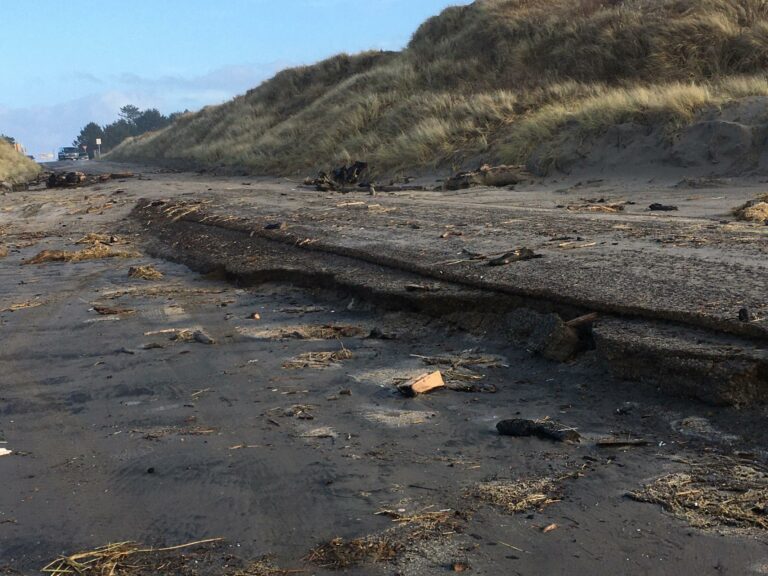
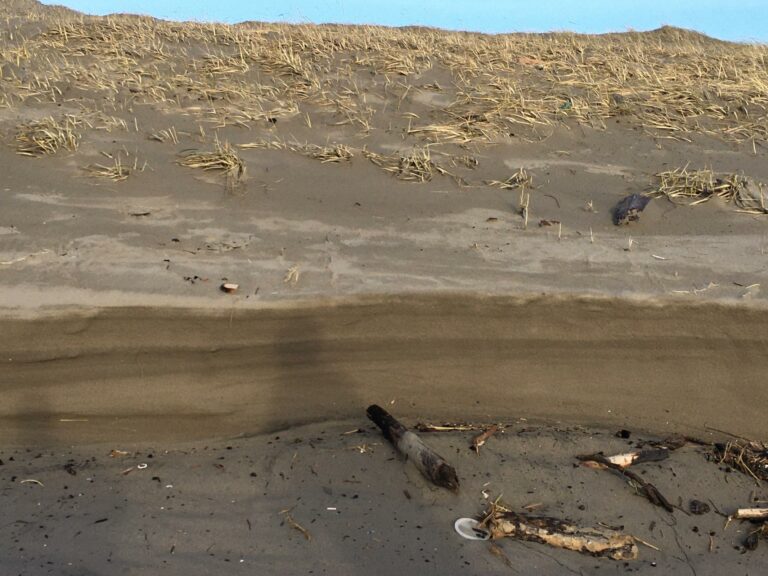
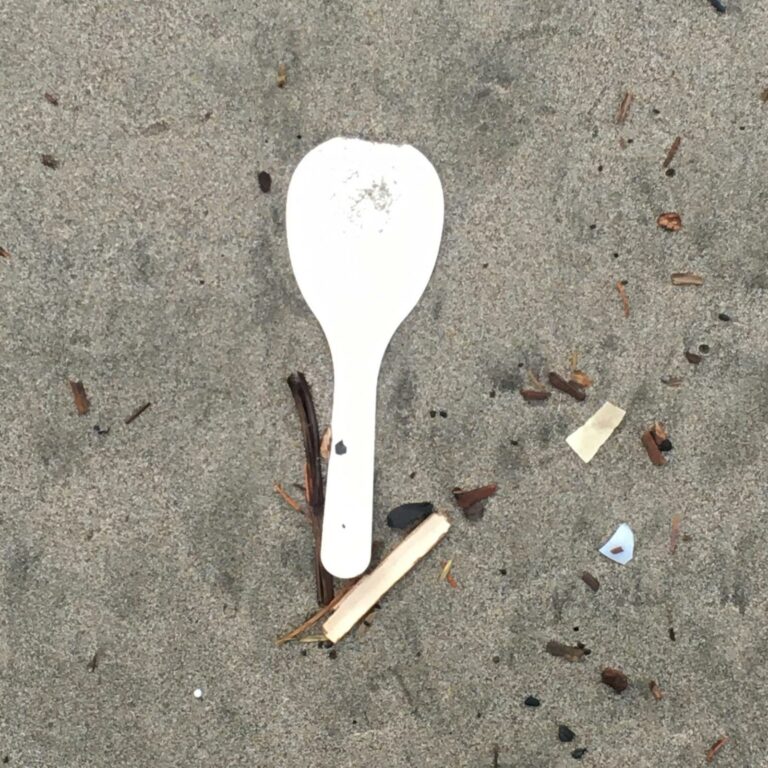
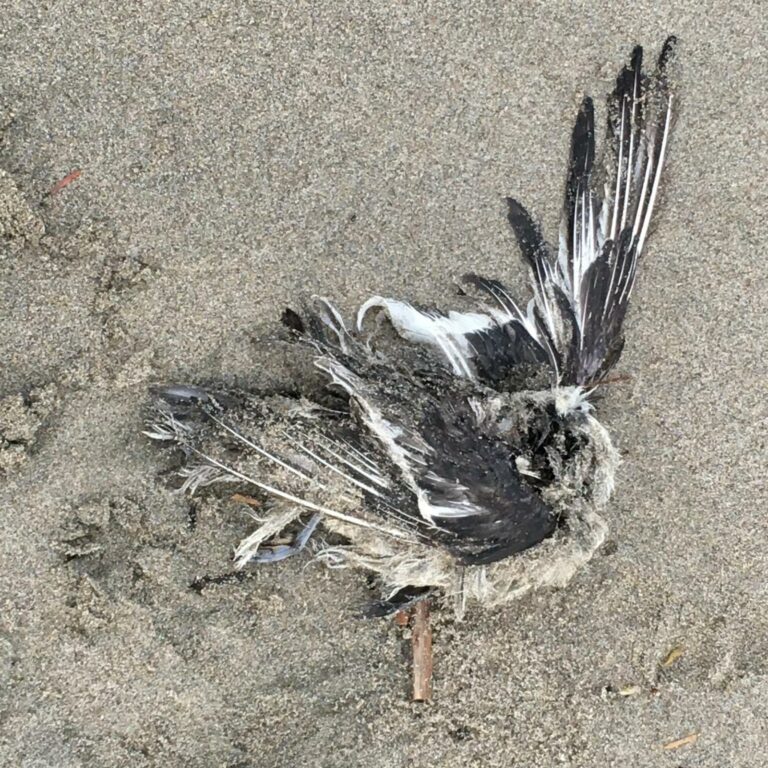
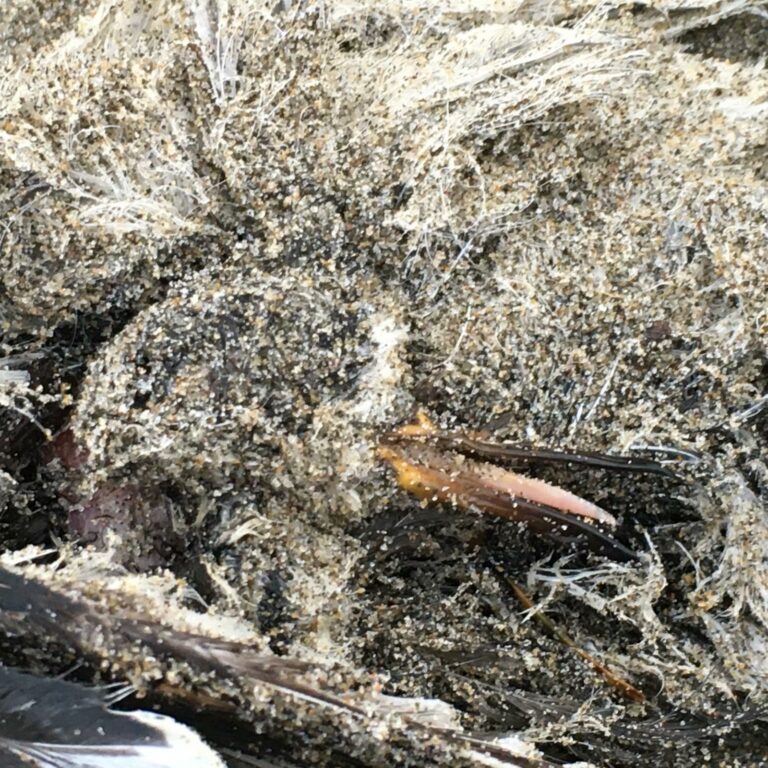
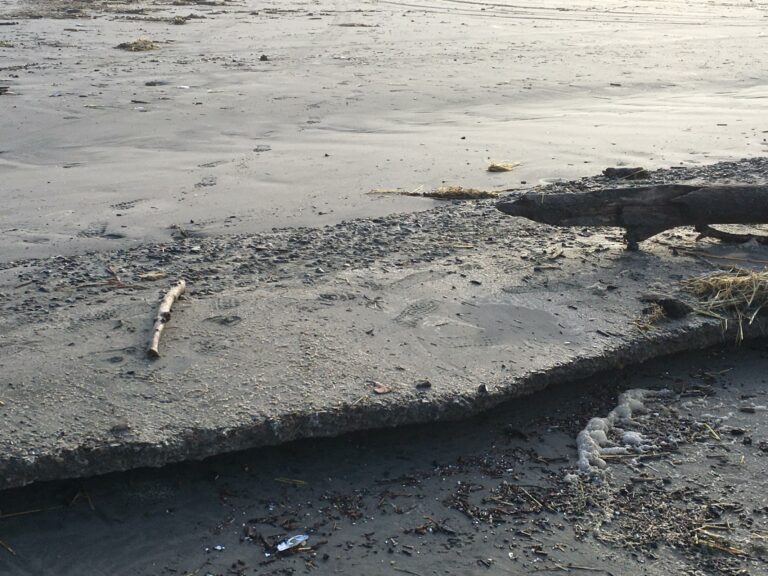
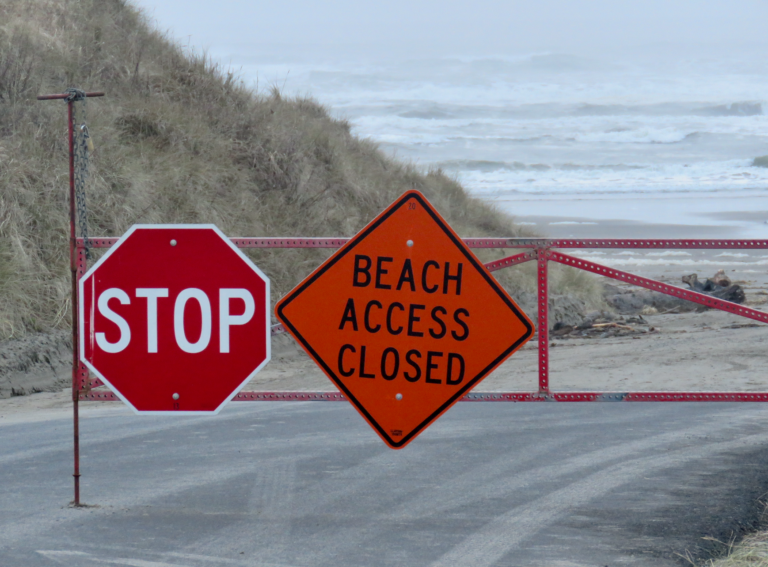
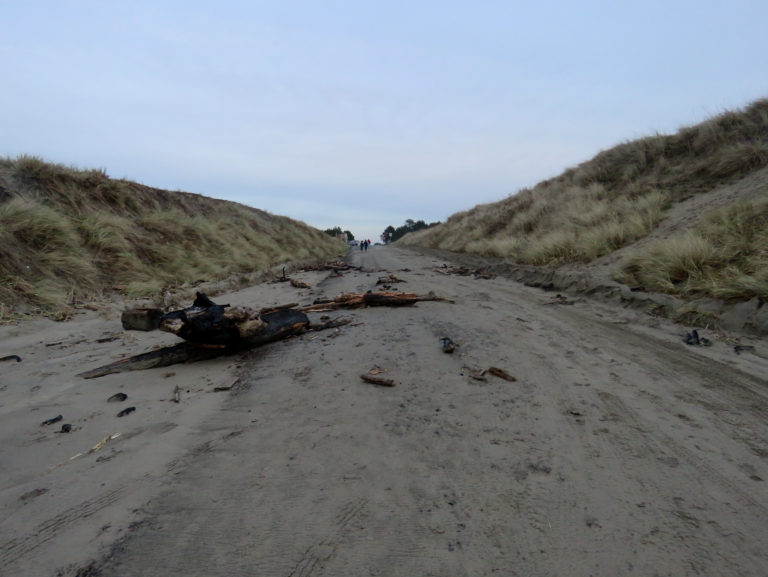
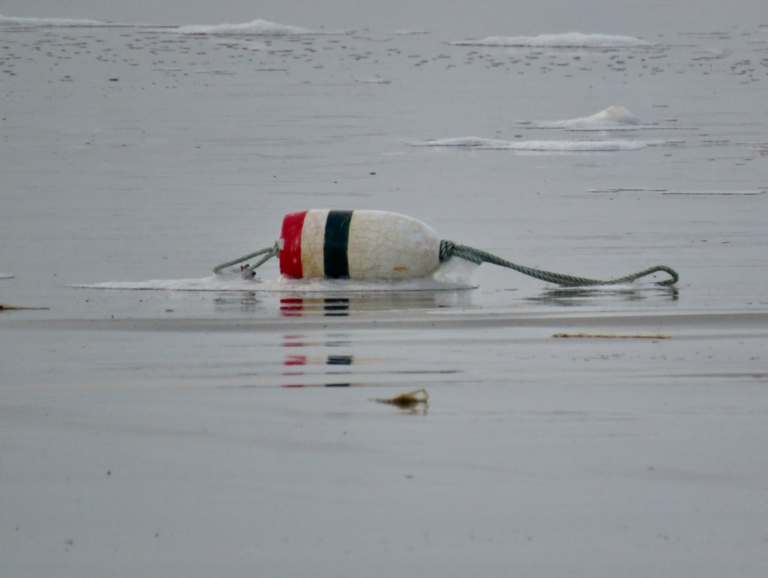
Report Images
All Mile 327 Reports
Mile 327
Clatsop Plains
A morning walk on mile 327 revealed 3 species of kelp: chain bladder kelp, bull kelp, and rockweed, and some interesting invertebrates: purple mahogany clam (Nuttallia) and pelagic gooseneck barnacles attached to a plastic soap pump bottle.
sultanym
Mile 327
Clatsop Plains
A late afternoon walk on mile 327 revealed three species of kelp washed up on the wrack line: bull kelp, sea palm, and giant kelp, and three species of dead avifauna: Common murre, Northern fulmar, and rhinocerus auklet.
sultanym
Mile 327
Clatsop Plains
A morning walk on mile 327 on July 5th revealed a significant amount of human trash from the fourth of July festivities on the beach, including hundreds of fireworks, abundant single-use plastics, and many food containers/food waste.
sultanym
Mile 327
Clatsop Plains
A cloudy yet mild afternoon walk on mile 327 revealed an interesting diversity of arthropod species in the wrack line: Say's Stink Bug, Large Yellow Underwing, 61 Serrated Darkling Beetles, and ladybird beetles (Coccinella and Hippodamia).
sultanym
Mile 327
Clatsop Plains
A quiet, cloudy morning walk on the southern end of mile 327 reveals considerable trash from human activities around fire pits on the dry sand area above the high tide line.
sultanym
Mile 327
Clatsop Plains
Today was a welcome respite from the recent heavy rain, high winds, and stormy weather that accompanied the King tides of Jan.
sultanym
Mile 327
Clatsop Plains
Mid-morning walk south towards Gearhart beach at a very high tide along the tide line I saw a dead Western Snowy Plover (Charadrius alexandrinus nivosus) carcass with bands on its legs.
sultanym

